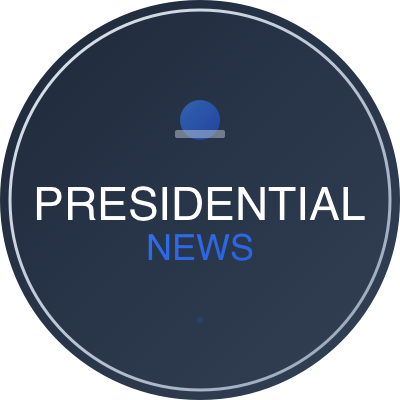NextFin news, On November 7, 2025, U.S. President Donald Trump publicly called for an immediate Justice Department investigation targeting meatpacking companies accused of manipulating beef prices through collusion, price fixing, and other illicit practices. The directive came amid record-high beef prices driven by persistent inflation, a severe multi-year drought that slashed the U.S. cattle herd to its smallest size in nearly 75 years, and the Trump administration's imposition of a 50% tariff on Brazilian imports earlier this year. These tariffs have significantly constrained import volumes of a major source of beef, tightening domestic supply further.
Trump expressed his concerns via a post on Truth Social, instructing Attorney General Pam Bondi and Agriculture Secretary Brooke Rollins to coordinate with Assistant Attorney General Gail Slater — head of the DOJ's antitrust division — to carry out a thorough probe. Key U.S. meatpackers under scrutiny include Tyson Foods, Cargill, JBS USA, and National Beef Packing Company, which collectively control approximately 80% of the U.S. grain-fattened cattle slaughter market. The DOJ’s antitrust division has broad authority to investigate civil and criminal anticompetitive conduct, issue subpoenas, and seek witness testimony.
Industry experts and livestock groups, such as R-CALF USA CEO Bill Bullard, have long expressed alarm over the high concentration in the meatpacking sector, which they argue distorts market prices and harms ranchers and consumers alike. Significantly, JBS USA and National Beef have considerable Brazilian ownership stakes—JBS USA by the Brazilian meatpacker JBS and National Beef by Brazil's Marfrig Global Foods — adding complexity to the impact of U.S. tariffs and trade policy on supply and price dynamics.
This investigation follows previous antitrust inquiries and multimillion-dollar settlements from meat companies accused of price manipulation, underscoring longstanding concerns regarding market fairness in the beef supply chain. Price-fixing lawsuits against Tyson, Cargill, and JBS have alleged conspiracies to restrict supply and inflate prices, though the companies deny wrongdoing.
Trump's probe initiative arrives in a broader macroeconomic context where inflation remains a significant policy challenge for the U.S. Federal Reserve and government officials. Food prices, especially meat, have consistently outpaced general inflation metrics this year, amplifying the pressure on household budgets and public sentiment. The drought's impact on cattle feeding costs and herd sizes has pulled supply down sharply while consumer demand remains robust despite higher prices.
Tensions with Brazil, a major beef exporter to the U.S., have intensified since August 2025 when the Trump administration enacted steep tariffs intended to protect domestic producers but resulting in reduced import volumes and tighter market conditions. Though Trump has suggested lowering cattle prices and promoting Argentine beef imports, economists argue that increased imports alone may not sufficiently alleviate retail price pressures due to supply chain and industry concentration factors.
In addition to the DOJ probe, bipartisan congressional voices, including Senators Josh Hawley and Cory Booker, have publicly urged rigorous antitrust enforcement to enhance transparency, prevent collusion, and restore competitive market dynamics in meatpacking. The administration’s focus on “pocketbook issues” reflects political urgency to address consumer cost-of-living concerns ahead of the 2026 midterms.
From an analytical standpoint, the probe is poised to examine multiple facets: the degree of horizontal consolidation among top packers, the pricing mechanisms linking feedlot-to-retail stages, the interplay between trade policies and import dependencies, and the drought’s long-term structural effects on beef supply elasticity. Historical data reveal that the U.S. cattle inventory contracted by nearly 20% in five years due to adverse climatic conditions, with feed costs rising over 25% year-on-year, both critical supply-side drivers independent of alleged corporate wrongdoing.
Moreover, the ownership links between U.S. packers and Brazilian firms introduce geopolitical risk and complexity, as tariff disputes may distort normal market arbitrage and incentivize strategic pricing approaches potentially harmful to competition. The investigation’s outcome could lead to stricter antitrust enforcement, regulatory reforms, and policy reconsiderations on trade barriers.
Looking forward, should the DOJ uncover evidence of illicit collusion or price manipulation, major penalties and operational restructuring of the meatpacking sector may follow, reducing industry concentration and potentially easing consumer price inflation. Conversely, failure to address structural supply constraints from climate and trade policy could keep prices elevated despite enforcement efforts.
The investigation also signals a broader trend where the current Trump administration prioritizes aggressive regulatory tools to confront inflation and industry concentration, differentiating its approach from prior administrations. For investors and market participants, close monitoring of regulatory developments will be critical, as meatpacker stocks and related commodity prices could experience volatility.
Ultimately, the probe underscores an intricate intersection of antitrust law, trade policy, environmental factors, and inflation management. It highlights the challenges policymakers face balancing domestic producer interests, consumer affordability, and international trade relations in a tightly consolidated agri-food system during economically volatile times.
Explore more exclusive insights at nextfin.ai.

